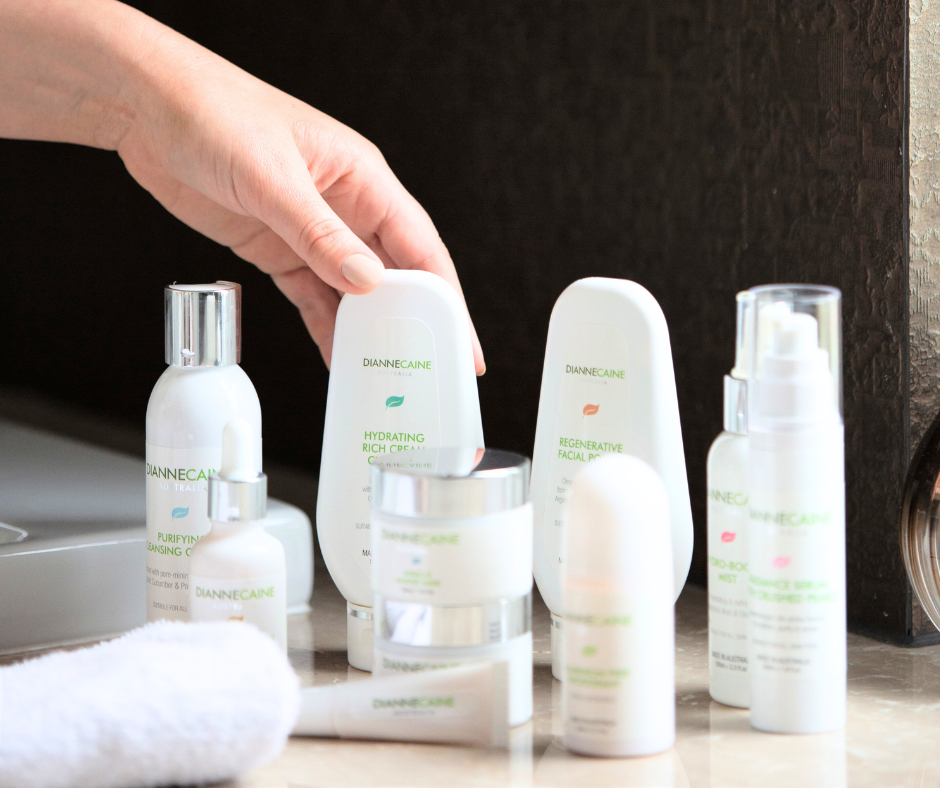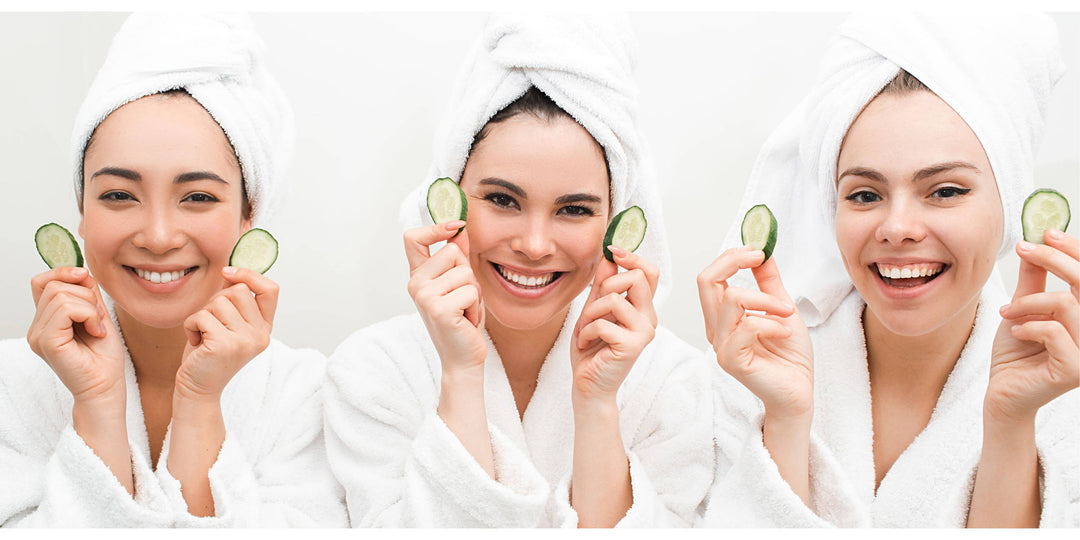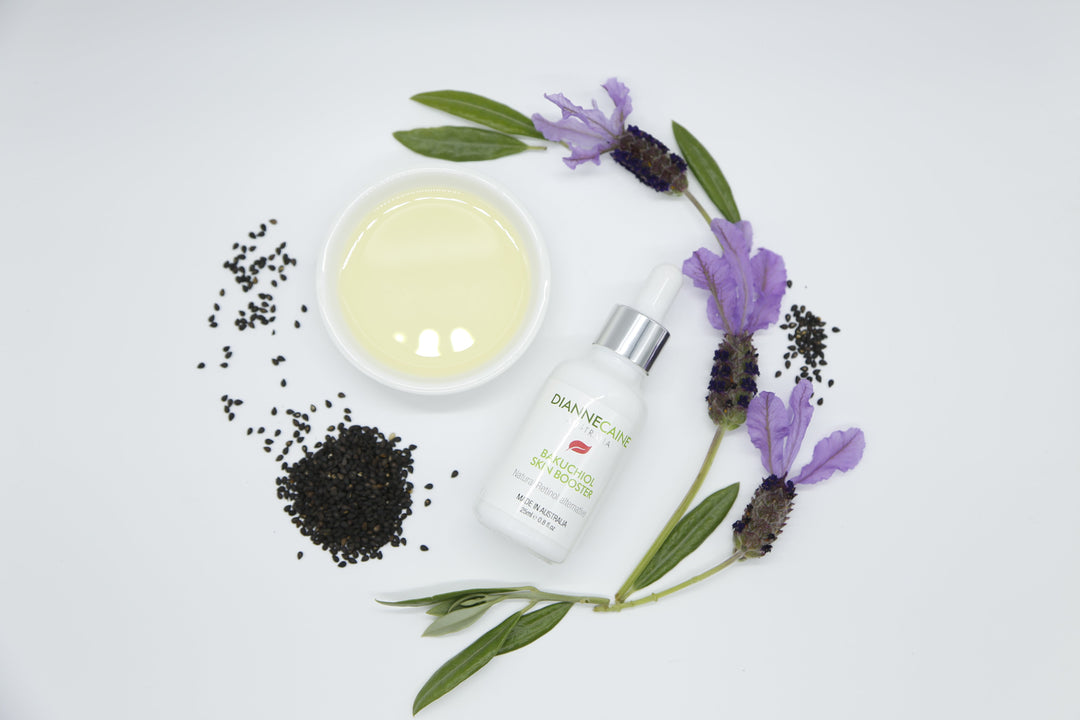BEAUTY IS MORE THAN JUST SKIN DEEP
In an age when social media presents an abundance of flawless face and body images, there’s a real thirst for information on miracle beauty and skincare products. Whilst it’s well worth investing in good quality, safe and non-toxic skincare for long term health, there’s so much more to achieving healthy skin than applying the “beauty is only skin deep” approach.
The skin is the largest organ of the body, covering an area of about two square metres. It provides a route for substances to be absorbed into the body and an excretory system to flush out toxins and other substances. As a result, the skin is subject to the development of various presentations including changes in colour, dryness, flaking, itching, redness, scaling, thickening and other problems.
Nutrition plays a critical role in the health of the skin - just look at the beautiful skin of a healthy baby or child who has not been exposed to years of poor nutrition. Whether we’re talking acne, eczema, dermatitis, psoriasis or aging, what you are feeding your body could have a greater influence than what you are putting on your skin.
A healthy wholefood diet that includes a wide variety of quality protein, essential fatty acids, antioxidants, vitamins and minerals provides the best fuel for healthy, radiant skin.
By following these 8 essential nutritional beauty tips you'll start to notice the difference inside and out.
Include more plant protein
Protein builds collagen which gives skin its strength and elasticity. Plant proteins offer protective effects against chronic skin conditions as they are less inflammatory than their animal counterparts. Beans, lentils, chickpeas, quinoa, nuts and seeds help meet fibre requirements to promote digestion and excretion of toxins from the bowel, preventing the skin from toxin overload.
Probiotics
Probiotics contribute to the function and integrity of the gut to prevent an increase in circulating toxins from manifesting as skin eruptions such as acne. They have been shown to modulate food allergy related immune responses and reduce systemic inflammation and oxidative stress associated with acne and atopic dermatitis. 1,2 Fermented foods such as Greek yoghurt, sauerkraut, kimchi and kombucha are great sources of live bacterial cultures.
Essential fatty acids
Salmon, mackerel, herring, grass-fed organic beef and chia seeds are excellent, rich sources of omega-3 essential fatty acids (EFAs). EFAs maintain skin health by keeping it supple and moisturised and may reduce inflammation associated with eczema, acne and autoimmune related psoriasis.
Antioxidants
Vegetables and fruits, particularly those that are vibrant in colour such as capsicum, broccoli, kale, sweet potato, red cabbage, beets and blueberries provide antioxidants to prevent free radical damage to skin cells. Carotenoids are precursors to vitamin A, known for promoting skin repair and are found in carrots, pumpkin, sweet potato, mango and papaya and are known to promote tissue repair. Also an antioxidant, green tea improves skin elasticity, with one study demonstrating a 16% reduction in skin roughness and 25% reduction in skin scaling.3
Vitamin C for collagen
Also a powerful antioxidant, vitamin C is a co-factor in the production of collagen. Collagen production slows as we age and with no capacity to make or store vitamin C in the body, it is important to consume it regularly in foods such as broccoli, capsicum, parsley, strawberries and pineapple.
Vitamin E
A fat-soluble naturally occurring antioxidant, vitamin E helps maintain the integrity of the membrane around skin cells and prevents collagen cross-linking which leads to aging of the skin. High amounts of this vitamin are found in wheat germ, sunflower seeds, egg yolk and whole grains.
Zinc
Instrumental in the production of stomach acid, zinc acts as a catalyst to promote the absorption and assimilation of nutrients including vitamins A and E. It can be effective for treating acne due to its role in hormone regulation and promoting skin healing. In the diet, zinc can be found in beef, seafood, sunflower and pumpkin seeds, whole grains, legumes and nuts.
The nervous system and the skin
Emotional states such as stress, anxiety and depression exert detrimental effects on our health and the skin is not exempt. Over 70 years ago, dermatologists Stokes and Pillsbury first proposed the gut-brain-skin axis - a link between emotional states and skin conditions. The authors theorised that emotional states affect the gut microflora, leading to altered gastrointestinal tract function, compromised integrity and ultimately systemic and local skin inflammation seen in many skin conditions.1
Aside from the nervous system and gastrointestinal tract, there are various other drivers of skin conditions including food sensitivities, hormone imbalance and lowered immune function. One of the primary principles of naturopathic medicine is to identify and treat the underlying cause of any illness or disease, rather than to merely suppress the symptoms. Our bodies maintain a delicate balance and it is all about restoring that balance. Skin health is very much reflective of inner health so it makes perfect sense to fuel our bodies with the best possible nutrients to achieve glowing, vibrant skin.
REFERENCES:
1. Bowe WP, Logan AC: Acne vulgaris, probiotics and the gut-brain-skin axis - back to the future? Gut Pathog 2001, 3:1. doi:[10.1186/1757-4749-3-1] https://www.ncbi.nlm.nih.gov/pmc/articles/PMC3038963/
2 Rosenfeldt V, Benefeldt E, Valerius NH, Paerregaard A, Michaelsen KF: Effect of probiotics on gastrointestinal symptoms and small intestinal permeability in children with atopic dermatitis. J Pediatr 2004, 145, 612-616. https://pdfs.semanticscholar.org/a0e6/86395809bba51a491e04163c0845e52beca5.pdf
3. Heinrich U, Moore CE, De Spirt S, Tronnier H, Stahl W: Green tea polyphenols provide photoprotection, increase microcirculation, and modulate skin properties of women, J Nutr 2011, 141(6), 1202-8, doi: 10.3945/jn.110.136465. Epub 2011 Apr 27. https://academic.oup.com/jn/article/141/6/1202/4600312






















